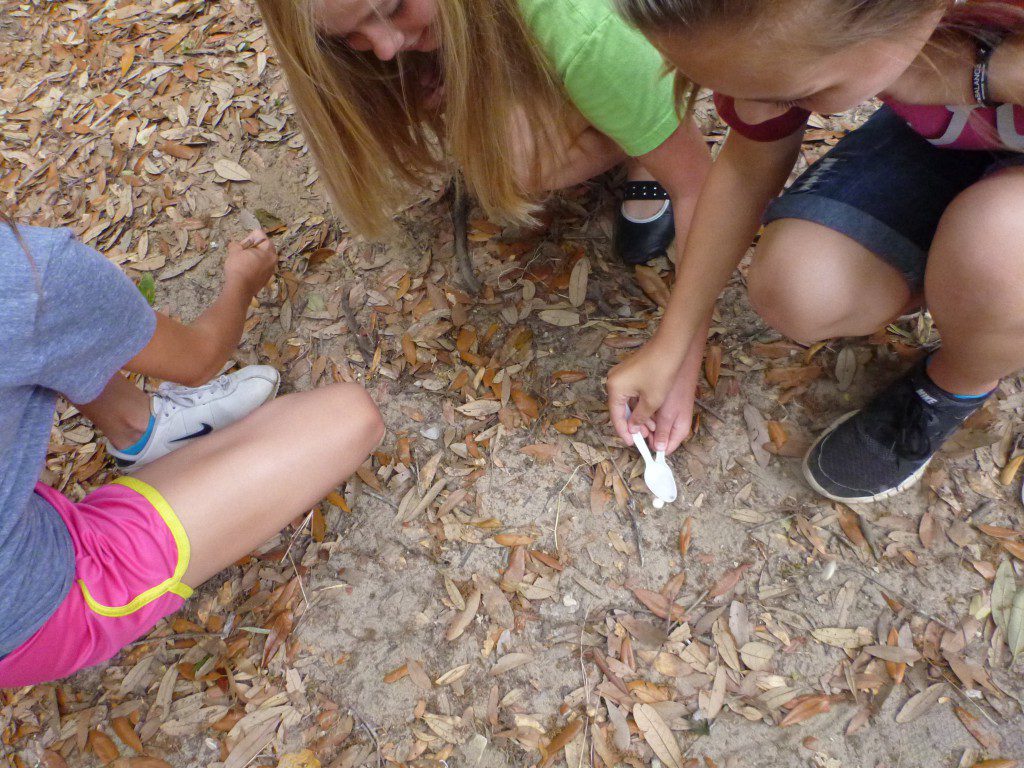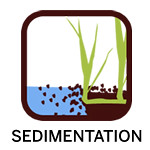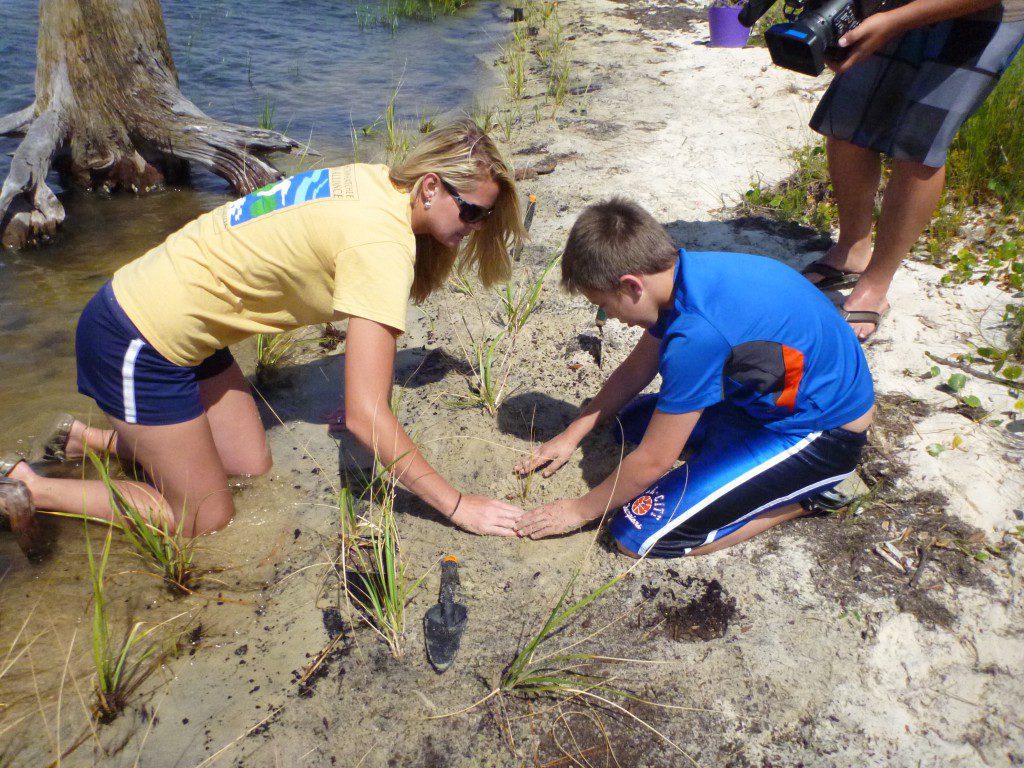Rob Diaz de Villegas WFSU-TV
Last week, we took a good look at the coastal salt marsh- an ecosystem with a lot to offer but that is seeing die-off across the world. Around Choctawhatchee Bay, schoolchildren are doing something about this.

Two “spoonbills” fight for lima bean. Students at the Laurel Hill School did more than plant marsh cordgrass on the coast. At this station, they were given three types of tools to use as beaks: clothespins, spoons, and chopsticks. With those beaks, the “birds” had to forage for food. The exercise taught them about the adaptations that give animals different advantages. The best adapted beaks got the most food.
Finding out about Grasses in Classes was one of the pleasant surprises of the year so far. The Choctawhatchee Basin Alliance and AmeriCorps start with a similar premise to the In the Grass, On the Reef project: to foster appreciation for coastal ecosystems like oyster reefs, seagrass beds, and salt marshes. We write and make videos for a general audience; Grasses in Classes goes into schools. What they do goes beyond lesson plans and worksheets. These kids grow smooth cordgrass (Spartina alterniflora), the foundation species of a coastal salt marsh, in their classrooms. Then they go to Choctawhatchee Bay and plant it. How awesome is that! You can see in the video how much the cordgrass spreads out over the course of the year, a powerful visual affirmation to the Laurel Hill School students that what they’re doing is having an impact and will benefit that coastline for years to come.
A few yards from their marshes are restored oyster reefs like the ones CBA builds in the bay. They’re frequent collaborators, the salt marsh and oyster reef. Marshes, oyster reefs, and seagrass beds join to create an estuary of critical importance to Gulf fisheries, sheltering most seafood species fished there at some point in their life cycles. As was said in both this and the O.Y.S.T.E.R. Recycling video, marshes and oyster reefs fight erosion. Marshes also filter stormwater runoff (check this list of everything that flows off of asphalt). And yet, probably because no amount of horseradish makes Spartina grass palatable, marshes don’t always capture the popular imagination as oyster reefs do. I hope we can change some of that in the coming weeks.
That’s where the CBA might have us beat. Through their work, a generation of schoolchildren is getting that appreciation the wet and dirty way, by actively restoring that habitat where development had removed it. And with the school year recently concluded, CBA and AmeriCorps are gearing up for next year by hiring 13 full time employees to continue to carry the program out. Click here for more information.


